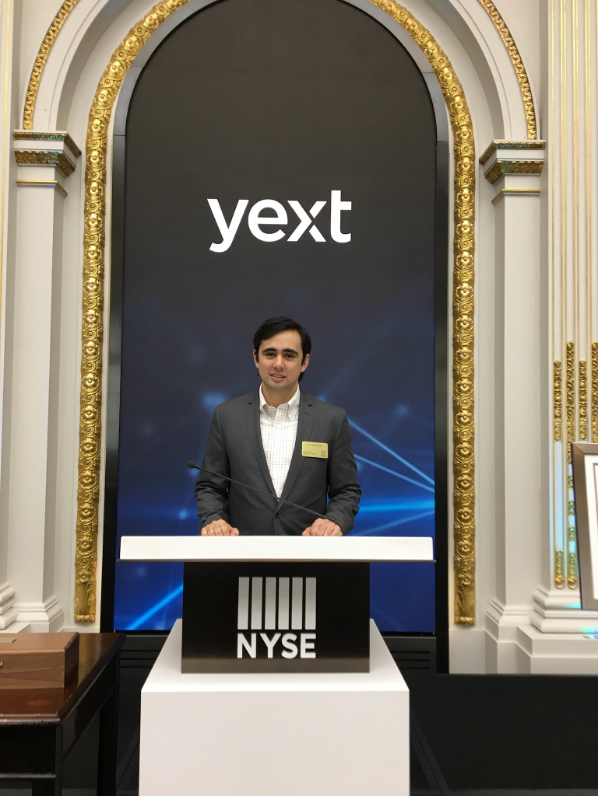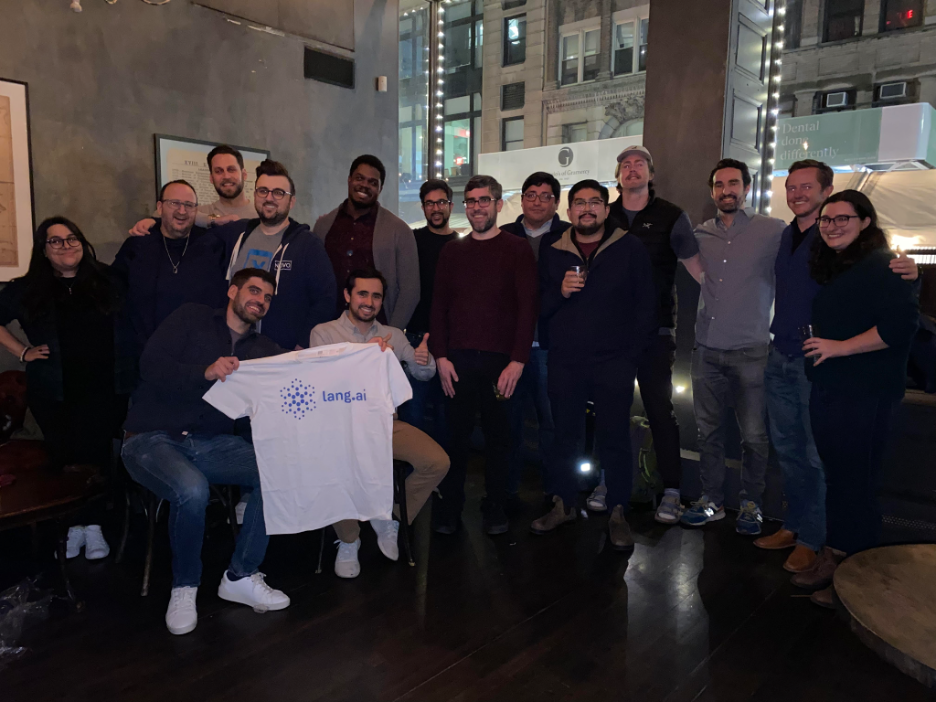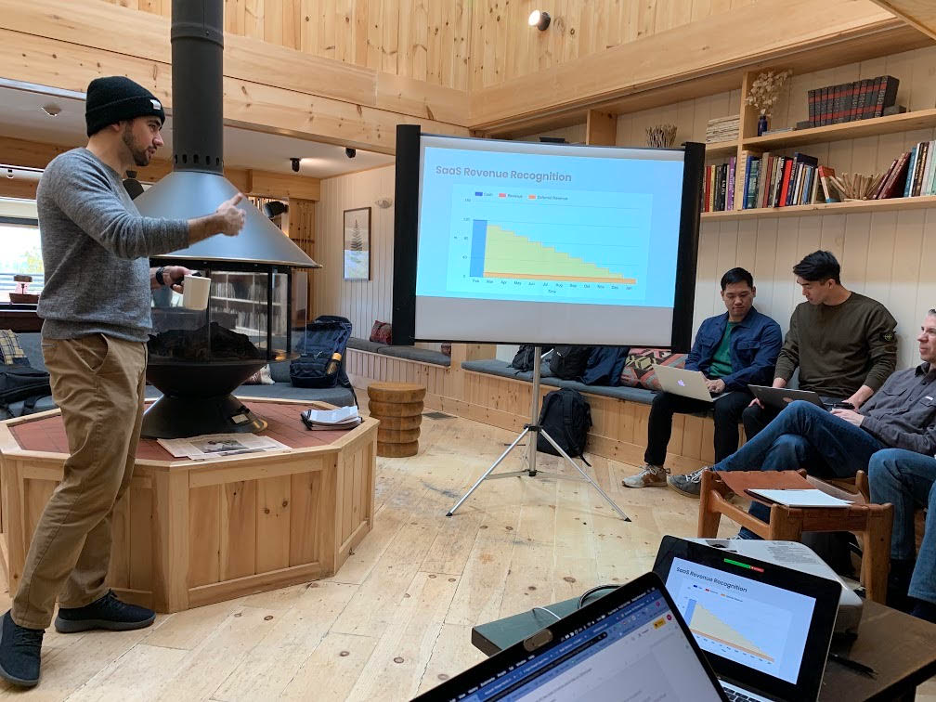SaaS Investor Stephan Cizmar Joins the Blackhorn Team

Blackhorn Ventures is thrilled to announce that Stephan Cizmar will join the firm as an operating partner and provide his expertise and insights on SaaS startups.
Stephan Cizmar knows enterprise SaaS inside and out. As an early member of the team at Yext who helped grow revenue and led corporate strategy for the enterprise AI search company, he’s well versed in what it takes to scale and IPO. He’s applied those learnings as a mentor at Forum Ventures and a co-founder at Lorimer Ventures, an investment syndicate to back bold entrepreneurs who build exceptional B2B startups within industries ripe for disruption. As co-Founder and Chief Strategy Officer at lang.ai, Stephan is helping business users build enterprise-ready natural language processing models in minutes. We caught up with Blackhorn’s newest Operating Partner to get his perspective on his journey into climatetech, the importance of product-led growth, and why this is a ‘crucible moment’ for supply chain resiliency.

(Yext’s debut on the NYSE, image courtesy of Stephan Cizmar)
Can you share the story of your journey to Operating Partner at Blackhorn Ventures? What brought you to this role? What is it about Blackhorn that is different than other climatetech venture funds?:
I originally started my career as a management consultant. After a couple of years in the role I came to the conclusion that I wasn’t professionally fulfilled and didn’t want to go down the standard MBA route and wind up back in consulting. I was living in DC at the time and started attending hackathons and startup meetups and quickly realized that I was energized by the creative process of entrepreneurship and building new things. I left consulting to launch my first company in 2014; an embedded FinTech concept (this was before FinTech was really a buzzword or even hip). The overall idea and concept was a great story for investors, but ultimately my co-founder and I struggled to move beyond the MVP phase and ended up shutting the company down a year after launch. The overall experience was very stressful but it got me hooked on the entrepreneurial rush and I knew from that point on that I wanted to craft a career in tech.
After shutting my company down I ended up joining Yext, an AI enterprise SaaS company. I spent six years at Yext and held leadership roles across operations and product strategy. I was really lucky to be part of an amazing growth story and IPO during my time there. Shortly after the Yext IPO a couple of friends and I launched a founder/operator syndicate called Lorimer Ventures with our own money; our operating philosophy is simple – we strive to be intentional and thesis driven investors who help early stage founders working to solve hard problems in large markets.

(Lang.ai team at play, image courtesy of Stephan Cizmar)
As a serial entrepreneur in enterprise software, what excites you about the energy transition?
As an operator and founder who has spent the majority of my career in SaaS I’m particularly drawn to the role that software is playing in fostering the clean energy transition. The grid is rapidly digitizing and will soon look more like the internet because of a few factors: two way communication and data transfer are becoming critical to manage growing distributed energy resource (DER) adoption, and feedback loops are closing between baseload power, intermittent renewables and energy storage coming online. I’m also very interested in the potential that API infrastructure presents within the energy space because as with the internet, more nodes and complexity requires better plumbing and coordination. I believe that this macro represents a substantial opportunity to create API oriented applications that foster greater data connectivity, visibility, and interoperability within the grid of the future.
You spend a lot of time on customer success and product-led growth; what should companies working on industrial impact take away from these frameworks?
I think the general framework that underpins product-led growth (PLG) of empowering end customers, reducing friction for adoption, and shortened and rapid product development cycles will ultimately make its way to industry 4.0 and climate software platforms. There are of course industry nuances that have to be accounted for, but the overall go to market concept is something that I have seen several companies adopting within their product development and revenue strategies. It’s critical that companies working within climate and industry 4.0 sectors implement PLG-like strategies that establish a tight feedback loop between their in-market team and product/engineering teams to ensure that they’re focusing on specific customer experiences of how their product is being used to reduce friction for adoption, high engagement, and value creation.

(Early days at Yext, image courtesy of Stephan Cizmar)
Do you think about product launch differently in regulated markets like energy, real estate, and transportation vs. ecomm?
No. I’ve led several product launches and go to market projects within regulated industries during my time at Yext and see really no difference. I believe that effective product management is centered around a core focus: identifying and solving your customers’ most impactful problems in the simplest way possible. This concept very much applies to regulated markets where the regulated aspect and nuances simply become another piece of complexity to account for within your product strategy and execution.
You’ve been investing for a while; what are the must-have’s when you evaluate a new deal?What are some of unexpected learnings you’ve had along the way? How has this shaped your perspective on early-stage investing?
When evaluating a new deal I look for a founder’s empathy and experience within their problem space and/or market that they’re building for. Do they have an ability to lay out a vision of the future where their product or platform is instrumental in driving efficiency and shifting how a particular piece of work gets done? When diligencing a deal I try to understand the customer journey as much as possible since this is an effective way of gauging early go to market strategy and product effectiveness. My biggest unexpected learning to date has been the times when I failed to fully dream with founders on a vision or idea because I had a preconceived bias and/or misinformed opinion about their concept. I love early stage investing because it’s a continuous journey of learning, driven by curiosity and creativity and I am energized by studying new markets, concepts, and industry trends.

What macro-economic, political or societal levers get you most excited about the industrial decarbonization opportunity?
I’m excited about the decarbonization opportunities arising from supply chain bottlenecks coupled with rising fuel costs. I truly believe that we’re entering a crucible moment for disruptive innovation within our freight and logistics processes, and I believe that the current macro situation will spur a new generation of companies that are driving a more efficient and cleaner global supply chain.
What are you most excited to accomplish, and what are you most excited to learn in this new role?
I’m really looking forward to working with founders and helping them build category-defining companies. As a multi-time founder and operator I have made thousands of mistakes throughout my career as I’ve built companies. As an investor, I want to help founders not make the same mistakes I’ve made. I strive to be a sounding board and partner to companies that I back, and love rolling up my sleeves when and where I can. In terms of what I’m excited for, I’m eager to learn from the team at Blackhorn. I have a ton of respect for my new colleagues and really admire what they have built and feel honored to be a part of it.